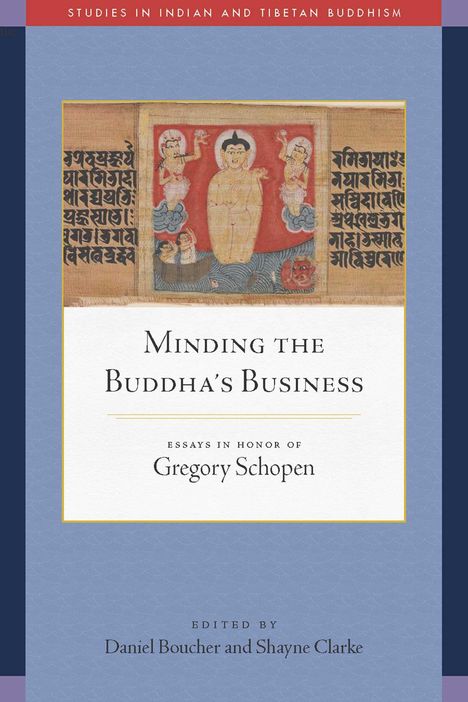Minding the Buddha's Business, Kartoniert / Broschiert
Minding the Buddha's Business
- Essays in Honor of Gregory Schopen
(soweit verfügbar beim Lieferanten)
- Herausgeber:
- Daniel Boucher, Shayne Clarke
- Verlag:
- Wisdom Publications, 06/2025
- Einband:
- Kartoniert / Broschiert
- Sprache:
- Englisch
- ISBN-13:
- 9781614297482
- Artikelnummer:
- 12017559
- Umfang:
- 536 Seiten
- Gewicht:
- 907 g
- Maße:
- 229 x 152 mm
- Stärke:
- 51 mm
- Erscheinungstermin:
- 24.6.2025
- Hinweis
-
Achtung: Artikel ist nicht in deutscher Sprache!
Klappentext
"This volume honors the profoundly transformative influence of Gregory Schopen's many contributions to Buddhist studies. Eighteen articles by former students and colleagues focus on the areas of Schopen's most noteworthy influence: the study of the Mahayana, particularly of its early sutra literature; the study of Vinaya, especially the narratives accompanying the rules for monks and nuns; and the study of Buddhist epigraphy and art history. Contributors demonstrate the ongoing significance of Schopen's scholarship, including his very first article, on the cult of the book in the early Mahayana, published fifty years ago. Schopen has repeatedly shown how the study of Buddhism has too often focused on scriptures and normative doctrines and not enough on the practical ideas and contexts that significantly impacted the lives of actual Buddhists. He sought to reveal these lived concerns in the massive trove of Buddhist inscriptions, which often expose the habits and ideas of the tradition's most prominent donors (many of whom were monastics), as well as the everyday concerns of monks and nuns whose views did not always dovetail with canonical sources. Even in his treatment of canonical sources, Schopen has shown that the standard portrait of a Buddhist monk or nun fails to match a careful reading of their law codes-his work on the Mulasarvastivada-vinaya has required scholars to substantially reimagine the legal and ritual obligations, as well as the economic concerns, that preoccupied the minds of Buddhist jurists. Schopen has, in essence, brought the Buddha down to earth, revealing that this is precisely where most Indian Buddhists encountered him. The contributions in this celebratory volume reflect this legacy and Schopen's considerable impact on our understanding of Buddhists in India"--


